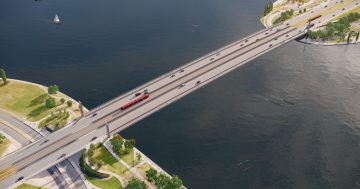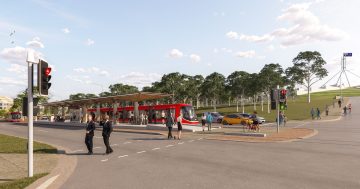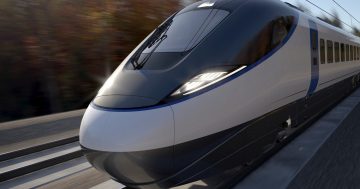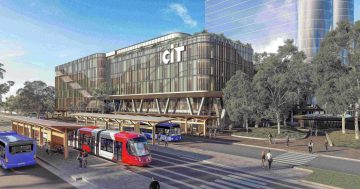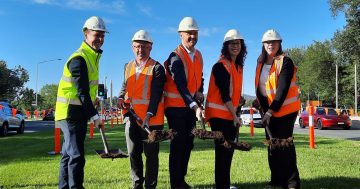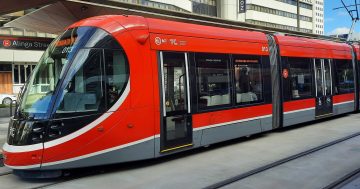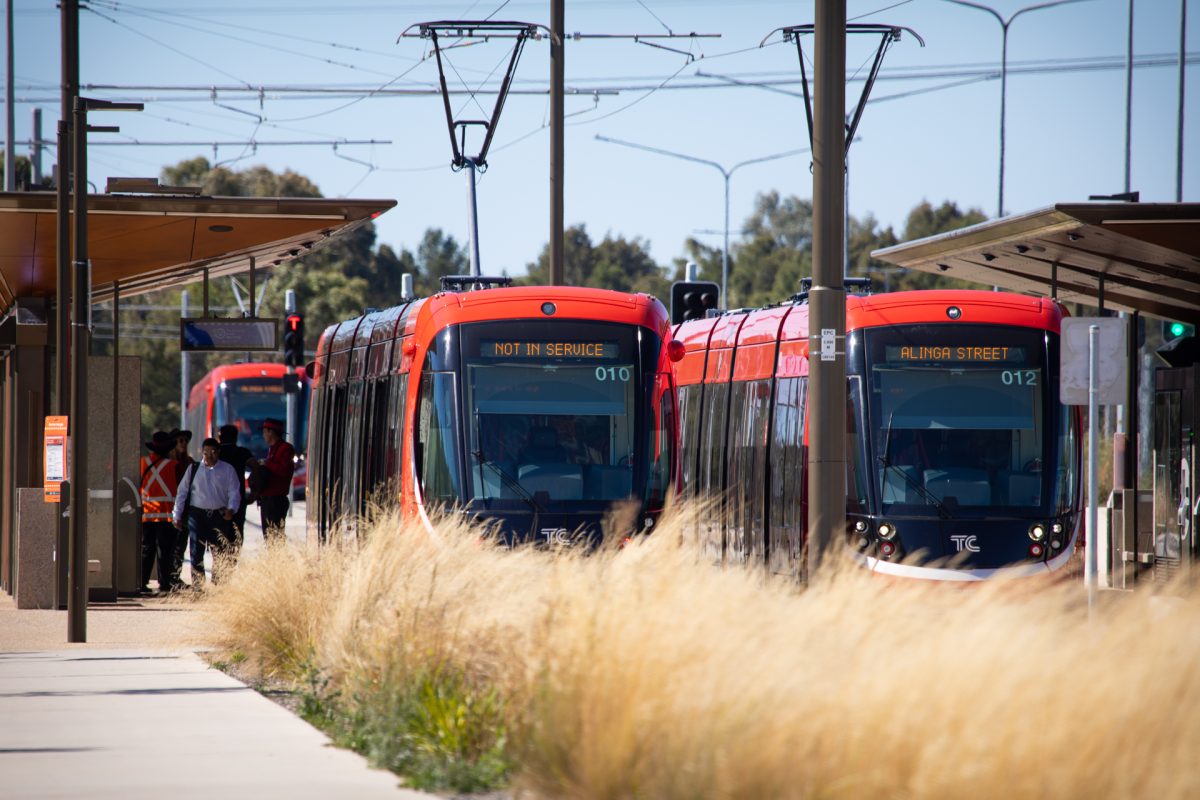
Is more light rail infrastructure for Canberra destined to be a ‘white whale’? Photo: Michelle Kroll.
My recent article about a Museum of Political Scandals and Controversies got a lot of interest.
One worthy comment was that we could have a hall in that museum dedicated to Australian infrastructure projects that cost a whole lot more than planned.
We all know that a ‘white elephant’ is an expensive infrastructure project that fails to meet expectations.
Australia, surprisingly, doesn’t have that many examples of infrastructure that were never used.
Overseas, we see airports that are constructed and not used (Spain), whole cities built that no one lives in (China) and military projects that create useless war machines (US).
What we do have in Australia are what I term ‘White Whales.’
These are infrastructure projects that are actually used but were delivered at a total cost wildly above the original contract price agreed by governments – and ultimately paid for by us as taxpayers – and also took much longer to finish (in the US, these projects are called boondoggles).
There are plenty of examples. There are various rail and tunnel projects in Melbourne and Sydney.
One is the West Gate Tunnel, which was originally costed at $500 million and is now, unbelievably, at least $10.2 billion.
The new Melbourne Metro Tunnel has blown out by at least $1.3 billion.
These tunnels will be used, but they are bankrupting that state.
The Sydney Metro West Line was originally costed at $18 billion and is now exceeding $25 billion.
While these projects will be useful, are they worth the money?
We have the Inland Rail. Designed to keep Barnaby Joyce and the Nationals happy during a period of coalition government.
It will be used, but the original cost of $4.7 billion has blown out to $31 billion and counting.
There are plenty of other examples. Sydney Light Rail. Snowy 2.0 Hydro Project. The Humpty Doo rice project. Waverley Park AFL stadium in Victoria. Even the Sydney Opera House, for all its wonderful glory, had a huge cost overrun.
Most things eventually worked and were used.
We love many of them, but they could have been done much more efficiently, and were they value for money when considered on a cost-benefit basis?
Would other projects have delivered a better return for taxpayer funds?
What triggered the name is whether the ACT’s next White Whale is light rail.
We don’t know what it will cost, but if it is built, it will definitely be used. It’s just that, according to some, our grandchildren’s children will likely be paying for it.
I have found that mentioning light rail extracts a lot of emotion from people.
There are those who get very angry if anyone dares challenge their great infrastructure project that will bring the ACT into the future.
They do not wish to discuss costs.
Then there are those who believe we are wasting a lot of money on something that they believe most people won’t be able to access and will not be finished for decades.
They always ask that annoying question, ‘How much will it cost?’ and the government, annoyingly, doesn’t tell them.
So, I have decided, when in conversation, to call it the White Whale.
There is then confusion around that name. Do I have a speech problem? Exactly what am I talking about?
But it does cause anger to dissipate and furrowed brows to disappear.
Then we have a more balanced, less emotional conversation discussing the pros and cons.
Why are so many infrastructure projects so poorly costed and planned?
Could it be the fact that the public servants involved have limited understanding and experience with contract law when it comes to the execution of large ‘fixed cost’ construction projects?
As a result, the construction company would be able to seek repeated variations in timing and costs due to poor contract specifications or limited project scope.
Then there is the politics.
Either the politics of getting elected (many infrastructure projects are announced in election years) or a pet or vanity project of a senior minister or political power broker.
There is also the relationship between big construction companies and big unions, which appear to be increasingly involved in government decisions to award large construction contracts.
Let’s make sure infrastructure projects are properly costed and planned; otherwise, there will continue to be billions of dollars spent on the wrong projects.
Or there will be billions of dollars spent that we can’t afford and could have gone to health and education.
In most jurisdictions (but not the ACT for some reason), there are independent infrastructure commissioners and bodies to help governments determine what is best.
These should have increased expertise on contracts, and more say in contract management and oversight.
It adds some complexity but could save many hundreds of billions of dollars.
If we aren’t careful, Victoria and the ACT will need a new version of Jeff Kennett to rescue them from bankruptcy by implementing draconian budget cuts and slashes.
If these costly projects were included in the Museum, then retired public servants could escort their grandchildren and tour groups through the displays and point to a project and say, ‘I told the government it would cost much more, but they wouldn’t listen’.
Excellent retirement opportunity.
Peter Strong was a Canberra business owner and CEO of the Council of Small Business Australia (COSBOA) for 11 years. He has announced his candidacy as an independent in the 2024 ACT election.












